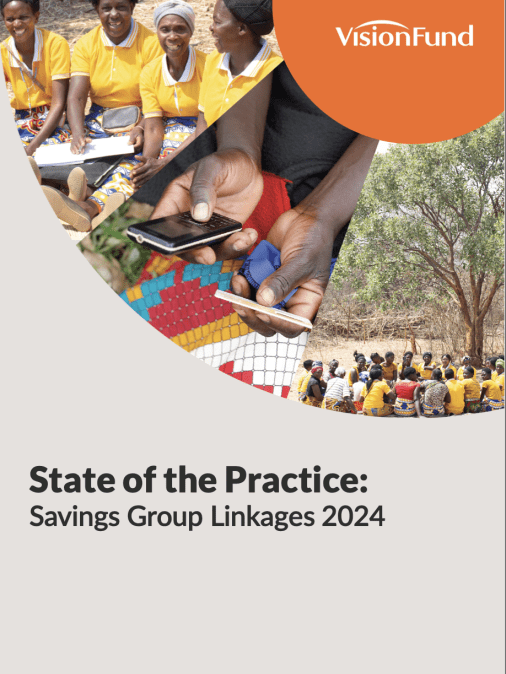State of the Practice: Savings Group Linkages 2024 Report
Descarregar
The 2024 State of the Practice Report, a groundbreaking study in the realm of financial inclusion, delineates the contemporary landscape of linkages between informal savings groups and formal financial services. Conducted as a follow-up to the initial Banking on Change partnership ecosystem mapping in 2016, this report is based on interviews with 46 practitioners across various sectors, unveiling a shift from the original Linkages 1.0 model to the more complex and diverse "Linkages 2.0."
The study identifies four main aspects of this evolution: roles of ecosystem players, distribution, product design, and technology. Notable shifts include changing roles and new entrants, with NGOs and financial institutions adapting to new business models, and the emergence of technology platforms. Agent dynamics at the last mile gain importance, as facilitators bring doorstep services to groups, aligning incentives to better serve them.
Linkages 2.0 present a diverse array of products beyond group accounts, embracing individual accounts, loans, insurance, and connections to digital marketplaces. Moreover, technological advancements, moving beyond cashless transactions, focus on paperless processes facilitated by high-quality technology platforms for digitized recordkeeping. The introduction of technology platforms and apps not only enhances recordkeeping accuracy but also provides flexibility in managing internal funds within groups. These platforms pave the way for the potential development of group and individual credit scores, although this aspect is still in its early stages of evolution.
However, entering the digital realm exposes savings groups to new risks, including potential data loss and breaches. The report calls for continued learning and improvement, posing questions for the field's future, such as ensuring tech-enabled efficiencies translate to inclusion and prosperity.
Promising practices from Linkages 2.0 evidence include delivering real value to groups, understanding group members' archetypes, using group products as entry points, offering digital options without mandating them, capitalizing on tech-enabled flexibility, setting clear expectations, and supporting the commercial interests of groups.
In conclusion, the report encourages practitioners to explore these practices in the next phase of linkages, fostering optimism for the future of financial inclusion. The authors emphasize the importance of ongoing learning and innovation to ensure linkages contribute to expanded and sustainable inclusion, delivering real value to groups and their members.